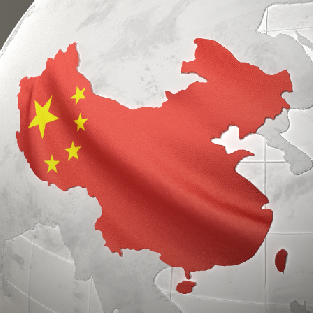Riding the Wind and Pushing Forward in Volatile Times

The online flipbook version of Banking Today is available for HKIB Members, and the Cover Story is now open for public reading.
Read Cover Story here and full journal via Members' Login.
For Non-Members, please continue reading by joining HKIB Membership or subscribing to Banking Today.
|
Issue #104 (Jan - Feb 2019)
|
  |
Cover Story
Opportunities blossom for banking in 2019
In 2018 we saw a game of two halves. The first few months were upbeat: investor sentiment was generally buoyant, amid a continuing low interest rate environment. But President Trump’s intentions toward Mainland China became clearer in May, and a trade dispute became evident in the second half, affecting sentiment across the board. The year of 2018 was full of challenges, but there will be blossoming opportunities for the Hong Kong banking industry this year, with a more prominent and proactive stance taken by the HKSAR government to encourage technology in financial services, whilst the Greater Bay Area initiative promotes the formation of a vibrant financial ecosystem in the region.
|
 |
China World
Using Fintech to better serve HNWIs
The private wealth management sector of Hong Kong recorded strong performance growth from 2015 to 2017, with recorded compound annual growth rate of over 20%. Among all affluent consumers, 34% of them were from Mainland China which take up a considerable portion of the Hong Kong private wealth management market. Therefore, banks must address those High Net Worth Individuals’ needs, which are increasingly towards services family offices provide. Besides, family offices’ Relationship Managers are using Fintech at the frontline to efficiently support their customers with financial products, taxation expertise and administration services.
|
 |
FinTech
Building an ecosystem of future banks
Hong Kong’s retail banking sector is undergoing a period of regulatory-backed innovation. While historically a traditional branch-based banking market, that may be about to change following the trend of increasing customer preference towards Fintech services, entry of non-bank players from Mainland China and the launch of a series of regulatory, infrastructure, and market competition initiatives across financial services. As virtual banking is seen as a milestone for Hong Kong’s banking industry, the prospective virtual banks will be working to create banking experiences unencumbered by legacy technology, people, and process issues, producing an ecosystem of digital banking services.
|
 |
Knowledge Plus
Future banking landscape needs non-traditional skillsr
As the banking industry in Hong Kong undergoes radical transformation, it is vital that the next generation of workers have the necessary technical know-how to respond to developments in areas such as Fintech, increasingly complex regulatory requirements and cross-border transactions influenced by the Greater Bay Area and Belt and Road initiatives. The next generation of workers needs to be able to adapt to future roles and this means that banking professionals will need to obtain non-traditional skills in order to thrive in the new banking landscape. At the same time, banks should consider how they can best equip their employees to adapt to a shifting environment.
|
 |
GRC Corner
Leading green finance in region
In recent years, there has been an increase in the emphasis on sustainability in various domains and fields, including economic development. Green finance has emerged in accordance with this trend for sustainability, becoming a spotlight in global financial markets. As the popularity of off-shore green bonds issuance increases, Hong Kong should not miss the opportunity to become a key player in the regional green bond market, leveraging its position as a well-established international financial centre. By continuing to demonstrate its commitment to green bonds, Hong Kong can establish itself as the leader of green finance in the region.
|
 |
Talk Around Town
Realising the Lantau Tomorrow Vision with a Special Purpose Vehicle
Through the island formation under the Lantau Tomorrow Vision and by converting unused agricultural land to residential land, the government could potentially add an additional 2,700 hectares to the land reserve of Hong Kong. A Special Purpose Vehicle can receive the land premium paid by the developers to convert the land usage from agricultural to residential. Whilst on the other hand, the SPV can be used to make use of these revenues and the seed money provided by the Government to run the island formation project. At the end, overcapacity of land supply would see per capita living space in Hong Kong improve significantly.
|










